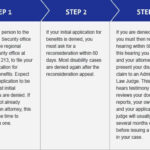Navigating tax disputes with the IRS can be daunting, especially when you’re facing financial hardship. Many taxpayers immediately think of hiring an Irs Lawyer to resolve audits, appeals, or collection issues. While tax attorneys offer crucial expertise, their services can be expensive. Fortunately, there’s a valuable resource available for those who qualify: Low Income Taxpayer Clinics (LITCs). These clinics provide a lifeline for individuals needing help with the IRS but who cannot afford traditional legal representation.
What are Low Income Taxpayer Clinics (LITCs)?
Low Income Taxpayer Clinics are organizations that operate independently of both the IRS and the Taxpayer Advocate Service. They play a critical role in ensuring fairness within the tax system by offering pro bono or low-cost representation to individuals with limited income who have tax controversies. Think of them as a bridge connecting those in need with expert assistance, often fulfilling the role an IRS lawyer would for those who can afford one.
How LITCs Can Assist You with IRS Issues
LITCs offer a range of services to help taxpayers resolve their issues with the IRS. These services include:
- Representation in IRS Disputes: LITCs can represent taxpayers in various situations, including IRS audits, appeals, and tax collection disputes. If you’re facing an audit or disagreeing with an IRS decision, an LITC can provide the representation and guidance you might expect from an IRS lawyer.
- Court Representation: In some cases, LITCs can even represent taxpayers in court when disputes with the IRS escalate.
- Responding to IRS Notices: Understanding IRS notices can be confusing. LITCs help taxpayers decipher these notices and take appropriate action.
- Correcting Account Problems: If you have errors or discrepancies in your IRS account, LITCs can assist in resolving these issues.
- Taxpayer Rights Education: A key function of LITCs is to educate taxpayers, especially those with limited English proficiency, about their rights and responsibilities under the tax law. They ensure everyone understands their obligations and how the system works.
Who is Eligible for LITC Assistance?
To qualify for LITC services, there are typically two main criteria:
- Income Level: Generally, a taxpayer’s income must be below a certain threshold. This ensures that services are directed to those who genuinely cannot afford legal representation.
- Amount in Dispute: While not always a strict rule, the amount in dispute with the IRS is usually less than $50,000. This helps LITCs manage their resources and assist a larger number of taxpayers.
It’s important to remember that while LITCs receive some funding from the IRS, they are entirely independent. This independence allows them to advocate fiercely for their clients without any conflict of interest, acting much like an independent IRS lawyer would on your behalf.
The Impact of LITCs
In 2023 alone, LITCs demonstrated their significant impact by representing nearly 20,000 taxpayers and educating over 140,000 individuals and service providers. They were instrumental in securing over $10 million in refunds for taxpayers and reducing or correcting over $41 million in tax liabilities. These figures highlight the crucial role LITCs play in supporting vulnerable taxpayers and ensuring a fairer tax system.
For those facing IRS challenges and worried about the cost of an IRS lawyer, exploring the services of a Low Income Taxpayer Clinic could be the ideal first step. To learn more about LITCs and potentially find a clinic near you, further resources are available.

